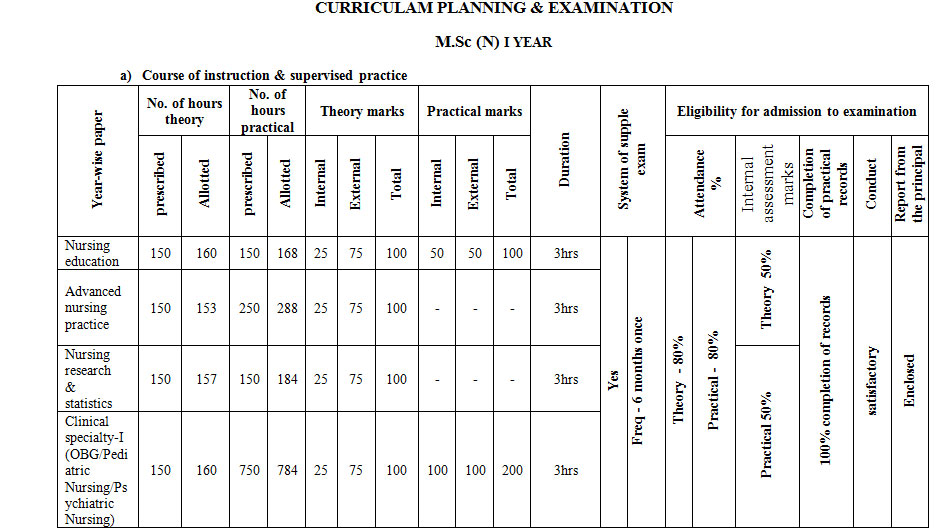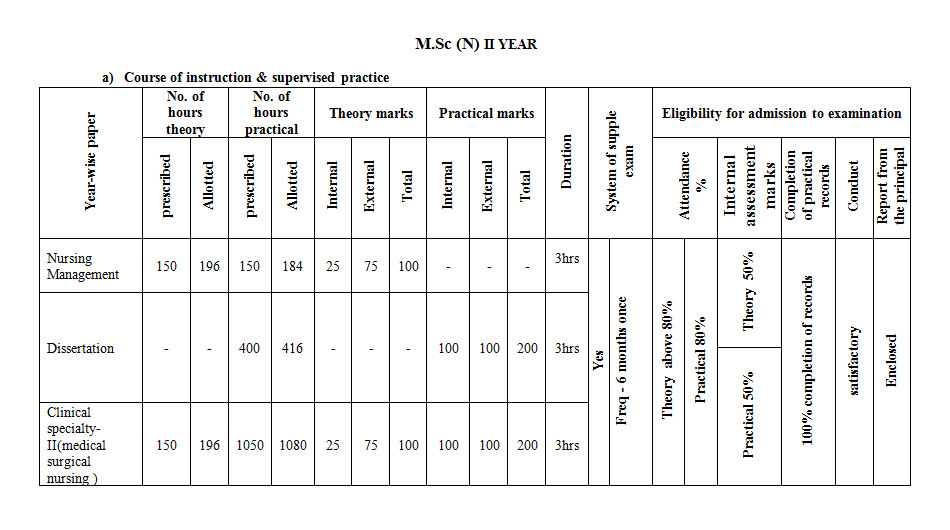Short Details:
- Duration: 2 Years
- Eligibility: B.Sc Degree
- Marks: Minimum 50% Marks
- Enrolled: 20 students
- Language: English
- Certificate: Yes


These courses provide a fundamental understanding of biological sciences, including Anatomy, Physiology, Biochemistry, and Microbiology. They lay the groundwork for understanding the human body and its functions, which are essential for nursing practice.
They cover topics such as Nursing Fundamentals, Medical-Surgical Nursing, Pediatric Nursing, Obstetric and Gynecological Nursing, Psychiatric Nursing, and Community Health Nursing. These courses provide theoretical knowledge and practical skills necessary for nursing care across different specialties and settings.
Admission Process: Admission to B.Sc. Nursing programs is usually based on entrance exams conducted by the respective university or state-level entrance exams. MGR University might have its own entrance exam or could consider national-level entrance exams like NEET.
Curriculum: The curriculum generally includes theoretical and practical training in various aspects of nursing, including Anatomy, Physiology, Biochemistry, Microbiology, Nutrition, Pharmacology, Pathology, Community Health Nursing, Medical-Surgical Nursing, Pediatric Nursing, Mental Health Nursing, Obstetrics, and Gynecological Nursing.
Clinical Training: Alongside theoretical classes, students undergo clinical training in hospitals associated with the university to gain practical experience in nursing care.
Internship: After completing the academic curriculum, students usually undergo a compulsory internship or residency program, where they work under the supervision of experienced nurses and doctors to gain hands-on experience in various healthcare settings.
Throughout the program, emphasis is placed on professional development, including communication skills, leadership skills, ethical principles, and legal aspects of nursing practice. Students also learn about healthcare systems, health promotion, patient advocacy, and cultural competence.
The candidate should be a Registered Nurse and Registered Midwife of equivalent with any State Nursing Registration Council.
The Minimum education requirements shall be the passing of B.Sc. Nursing / B.Sc. Hons. Nursing / Post Basic B.Sc. Nursing with minimum of 55% aggregate marks.
The candidate should have undergone in B.Sc. Nursing / B.Sc. Hons. Nursing / Post Basic B.Sc. Nursing in an institution which is recognized by Indian Nursing Council
Minimum One Year of Work Experience After Basic B.Sc. Nursing.
Minimum One Year of Work Experience Prior or After Post Basic B.Sc. Nursing.



M.Sc Nursing Course Syllabus

